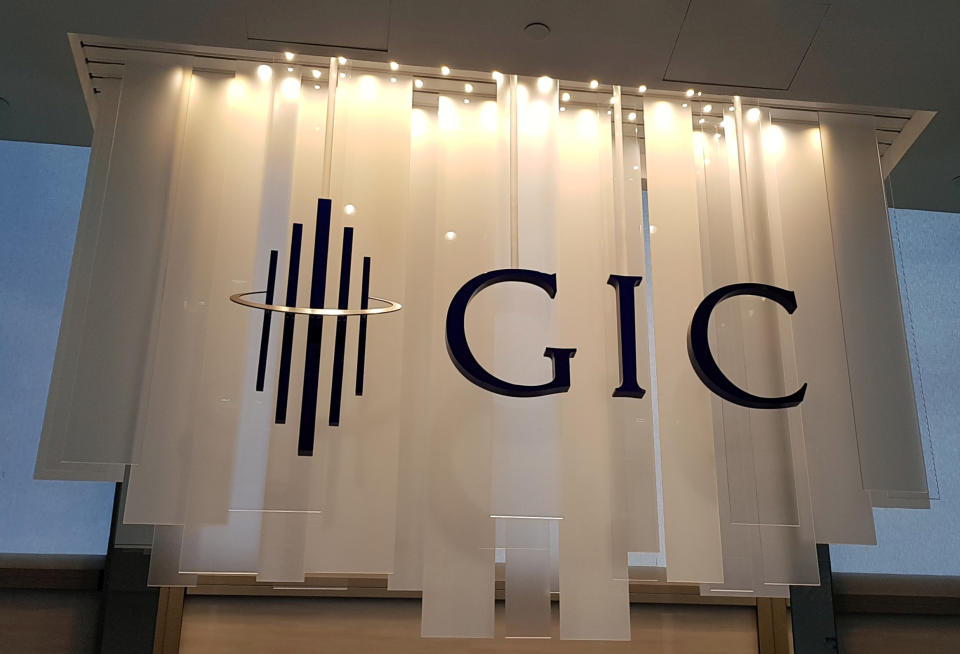One of the world’s biggest investors warns of more pain to come

By David Ramli
(Bloomberg) -- One of the world’s largest sovereign wealth funds has warned that global markets are set to become even more volatile, adding to pressure on returns amid rising coronavirus infection rates and continued U.S.-China tensions.
GIC executives listed a swathe of unpredictable factors looming large in the minds of investors, from the pandemic’s shutdown of shopping and hospitality venues to bubbly valuations fuelled by debt being raised at historically low interest rates.
The bearish comments from GIC add to the growing chorus of caution from other big dealmakers pouring cold water on hopes of a rapid V-shaped recovery. Fitch Ratings Ltd. on Tuesday warned that the economic fallout from Covid-19 could last years due to increased unemployment and reduced company spending.
“The timing and shape of the recovery is highly unclear, partly because of the infection rate,” GIC Chief Executive Officer Lim Chow Kiat said, adding that the slowdown of globalisation and impact from government stimulus measures were all complicating factors. “The economy continues to face a lot of headwinds.”
Singapore’s sovereign wealth fund reported a 20-year annualised real return of 2.7% on Tuesday, down from last year’s 3.4% and its worst performance on that metric since 2009 when it lost over one-fifth of its value in a single year. GIC doesn’t release one-year performance figures.
But the firm said it was the dot-com bubble of the late 1990s falling out of its rolling two-decade investment window, rather than March’s market turmoil, that caused most of the decline because it had already turned more defensive. GIC under Lim’s leadership has repeatedly warned of falling returns caused by geopolitical tensions and unstable valuations.
While GIC officially manages “over US$100 billion” in assets and declines to provide an exact figure, the Sovereign Wealth Fund Institute estimates its holdings are around US$440 billion.
Over the past three years, GIC has slashed the percentage of assets it invests in developed-market shares from 27% of the portfolio to 15% as of March 31, 2020; nominal bonds and cash now make up 44%. GIC’s annualised return over a five-year period also fell to 3.9%, versus 4.9% last year.
Even so, the pandemic’s effects on global markets are forcing it to re-evaluate much of its investment universe. One key area of focus is real estate because GIC is one the world’s biggest property investors. While logistics and data centres remain solid prospects, Group Chief Investment Officer Jeffrey Jaensubhakij said GIC is reviewing the long-term fortunes of more vulnerable segments.
Offices, Hotels
“We’re looking very carefully in ascending order of concern at offices, hotels and shopping centres with student housing somewhere in between shopping centres and hotels, and asking what is likely to be permanent damage versus cyclical,” he said during a virtual briefing in Singapore Monday. “Even at the end of the recession there could be permanent damage.”
The pandemic has also hurt other parts of its investment sphere. Earlier this year both GIC and Carlyle Group Inc. asked a U.S. court to scrap a deal they’d struck to buy a stake in American Express Global Business Travel.
On investing in a low-rate environment:
“You try to emphasise those assets which still could go through ups and downs, but cash flow is more resilient. You find them in credit, corporates, structured, even in some emerging-market government bonds. That’s an area we’re diverisfying to. It’s hard to replace the safe bonds that everyone has been enjoying for a long time.”
Lim Chow Kiat, GIC CEO
Lim and Jaensubhakij said GIC has plenty of dry powder to make investments if it sees opportunities. The firm’s headcount has grown by 200 staff to 1,700 globally, including some 700 dedicated investment personnel. While some opportunities came about when the markets first crashed in the wake of Covid-19, these quickly evaporated as government stimulus packages and continued low-interest rates sent valuations soaring.
One area where GIC may search for potential partners is the hotel space in large countries like China and Australia where domestic tourism could receive a boost as restrictions on international travel persist. It also continues to look for deals in Asia where tailwinds like increased urbanisation and trade between its countries will make the region a more attractive source of deals.
And while the firm expects geopolitical strife between the U.S. and China to remain for the foreseeable future -- an uneasy prospect considering over half of its portfolio is distributed between the U.S. and Asia excluding Japan -- it’s also hunting for potential wins amid the trade war.
“As the U.S. and China battle it out on the technology leadership front, China will definitely want to be more self-sufficient in some areas where it feels that it’s behind and is dependent on the U.S.,” Jaensubhakij said. “There’ll be opportunities in the Chinese investment area where they’re going to push domestic self-sufficiency.”
© 2020 Bloomberg L.P.

 Yahoo Finance
Yahoo Finance